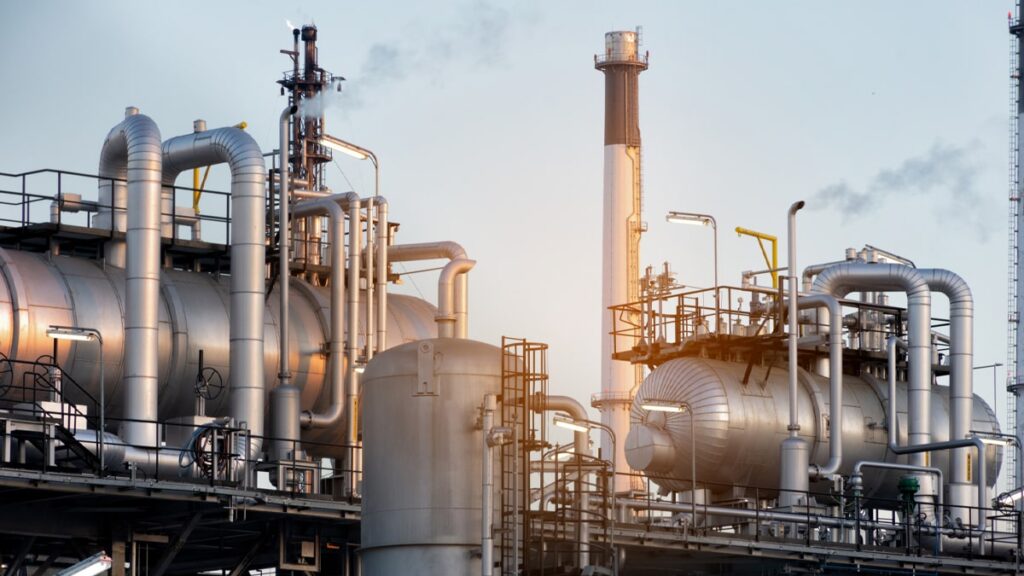Natural Gas is one of the most important commodities that is required for the country to become energy-sufficient.
Natural Gas is used as a heating source for both heating houses and as a cooking fuel. Apart from Petroleum Gas, Natural gas is also used and is used as an energy source for both domestic as well as commercial gas.
In this article, we will discuss what are the disadvantages of natural gas, the types of Natural Gas, the benefits of natural gas, and much more.
But first, let’s find out what is Natural Gas.

Table of Contents
What is Natural Gas?
Natural Gas is a naturally formed gas found deep inside the earth’s crust due to the decomposition of plant and animal waste millions of years ago.
The gases released during the decomposition process are trapped inside the earth’s crust and converted into Natural Gas under extreme heat and pressure.
Natural Gas can be extracted by drilling in these crusts and supplying it via pipeline to the nearest port to be exported.
There are four types of natural gas, which are as follows-
- Methane
- Ethane
- Butane
- Propane
Benefits of Natural Gas
The following are the benefits of Natural gas-
- Natural Gas can be a great source of energy as its calorific value is very high making it highly efficient in using as a source of energy
- Natural Gas is colorless, tasteless, and odorless making it not life life-threatening gas for humans
- Natural Gas is less corrosive due to high methane and low carbon components in the mix
- The density of natural gas is lower than the air hence, the gas goes up in case of a leak making it easy for dissipation in case of leakage
- Natural Gas is readily available and requires low processing making it an amazing source of energy for cooking, industrial production, heating source, etc.
Top 10 Natural Gas Exporters
The following are the top 10 exporters of Natural Gas in the world-
| Country | Production |
| United States | 1.03 trillion cubic meters |
| Russia | 699 billion cubic meters |
| Iran | 244 billion cubic meters |
| China | 219 billion cubic meters |
| Qatar | 170 billion cubic meters |
| Australia | 162 billion cubic meters |
| Norway | 128 billion cubic meters |
| Saudi Arabia | 105 billion cubic meters |
| Algeria | 102 billion cubic meters |
Top 10 natural Gas Importers
The following are the top 10 importers of the Natural gas in the world-
| Country | Import (in cubic meters) |
| Germany | 119,499,997,184 |
| Japan | 116,599,996,416 |
| China | 97,630,003,200 |
| United States | 86,149,996,544 |
| Italy | 69,660,000,256 |
| Turkey | 55,130,001,408 |
| Netherlands | 51,000,000,512 |
| Mexico | 50,119,999,488 |
| Korea, South | 48,649,998,336 |
| France | 48,590,000,128 |
Disadvantage of Natural Gas
Every good thing has some bad effect which can affect you in some way or another. The following are some of the disadvantages of natural Gas which you’ll have to keep in mind-
Highly Combustible
Natural Gas is highly combustible making it an amazing source of energy. The chemical composition of natural gas contains a high amount of hydrogen atoms attached to a single element of carbon which aids in the burning of the gas.
The standard way of Natural Gas transport and storage is to compress the gas to change its state from gas to liquid and then store it in heavy cylinders.
This way, the transport and storage of the gas become easy but the problem with this is that due to high compression, the cylinder acts as a bomb meaning, if the gas is leaked and catches fire then the cylinder will blast.
Limited Availability
Natural Gas although is available in very limited areas and limited amount. Natural Gas takes millions of years and ancient plants or animals decay deep inside the earth’s crust for it to form Natural Gas and other petroleum products.
There are a lot of variables that go into making Natural Gas hence, Natural Gas is a limited natural source and the oil and gas well have limited stock to be used.
Non-renewable sources of Energy
Natural Gas is a non-renewable source of Energy and is extracted from deep inside the earth’s crust by drilling. The problem with non-renewable energy is that it leaves behind a huge carbon footprint when burned contributing to global warming.
Natural Gas Emitte CO2
Natural Gas when burned emits CO2 which is a harmful greenhouse gas and results in global warming. It is not as harmful as other pollutants but if released in huge quantities then it may result in a warming up of the environment.
A common Natural Gas is methane which has a chemical formula of CH4, when burned, the Hydrogen atoms get burned and produce water vapors but the carbon atom in the methane combines with oxygen and forms CO2.
Storage
The storage and transport of natural Gas is extremely difficult and requires specialized cylinder and truck modules for storage and transport.
Many Natural Gas producing nations use pipelines to directly supply the gas to the industries and households. This enables them to save the cost of storage by developing a pipeline and supplying it directly.
The cost of construction of the pipeline can cost billions of dollars and long-distance pipelines will require huge engineering challenges.
FAQ
Natural Gas is naturally occurring gas composed of carbon and hydrogen atoms whereas Gasoline is primarily made up of carbon compounds and is obtained by processing the Petrolum.
Yes, you can use Natural gas for cooking, and in India, it is available in the form of a PNG gas pipeline supply. PNG Stands for Piped Natural Gas which is done by piped connection in a subscription-based model with a monthly bill.
Four main types of natural gas are used as fuel- Butane, methane, Propane, and Ethane.
No, LPG Stands for Liquid Petroleum Gas which is extracted as a sub-product while processing the crude oil.
CNG Stands for Compressed Natural Gas which is nothing but a natural gas used for car fuel, cooking, etc.
LPG stands for Liquid Petroleum Gas and CNG stands for Compressed Natural Gas. LPG is extracted by processing the crude oil along with other petroleum products whereas CNG is natural gas which occurs naturally.
CNG is cheapest between both, LPG despite having LPG Subsidy comes with a higher cost than CNG. The cost of LPG is Rs.51 per SCM in Delhi NCR and CNG costs Rs 48.59 per SCM. If you Give up your LPG Subsidy, the cost of LPG will go up.
I’m Shiv Kumar, a graduate with a passion for finance, marketing, and technology. My journey into finance started with a desire to understand money management and investing.
Our main goal is to empower individuals through financial education. We believe that everyone should have the opportunity to build a strong financial foundation. Whether you’re a seasoned investor or just getting started, we provide articles, guides, and resources to help you navigate the financial landscape.
I invite you to join our community of financially savvy individuals. Feel free to ask questions, engage with our content, and explore the topics that matter to you. Together, let’s take control of our financial futures.




